Hero #071: Colin Kaepernick … (03/24/16)
Colin Kaepernick began his professional football career as a backup quarterback to Alex Smith, and became the San Francisco 49ers’ starter in the middle of the 2012 season after Smith suffered a concussion. Kaepernick then remained the team’s starting quarterback for the rest of that season, leading the team all the way to their first Super Bowl appearance since 1994. The following year, his first full season as a starter, Kaepernick helped the 49ers reach the NFC Championship Game. And yet Colin Kaepernick is not here today to be lauded for his athletic accomplishments, but rather for the fact that he had the courage and the integrity to sacrifice his career for a greater cause …
In 2016, Kaepernick became a national figure after he began protesting the systemic racial injustice that plagues the United States to this day; doing so by refusing to stand for the playing of the United States national anthem before the start of games. His actions prompted a wide variety of responses, including inspiring dozens of other pro athletes (both in the NFL and in other American sports leagues) to protest as well, and even many members of the U.S: armed forces to supports those protests. And yet, unsurprisingly, Colin’s bravery did not come without cost (the receiving of regular death threats being not the least of which), as no team chose to hire him after the 2016 season, and this despite the fact that he remains – both statistically as well as per his winning resume — one of the better quarterbacks available. Colin Kaepernick* – a black man who had the courage to protest the well-documented systemic oppression against other members of his race – had been (and remains) black-balled.
Interestingly enough, in the weeks and months following his original protests, Kaepernick’s jersey became the top-seller on the NFL’s official website, even while a fan poll taken on that same site voted Kaepernick the NFL’s most disliked player. Again unsurprisingly, this poll was highly polarized based on the race of the respondents, ironically providing yet another piece of evidence soundly proving Kaepernick’s claim.
Later that year, Kaepernick vowed to donate $1 million of his salary to “organizations working in oppressed communities” (a promise he has since fulfilled), and thereafter went several steps further by actually getting directly involved in the African-American community first-hand, hosting a “Know Your Rights Camp” in cities around the country to inspire youth to transcend violence and to teach them how to effectively interact with police officers.
“I am not going to stand up to show pride in a flag for a country that oppresses black people and people of color. To me, this is bigger than football and it would be selfish on my part to look the other way. There are bodies laying in the street while the people who put them there are getting paid leave and getting away with murder … I’m going to continue to stand with the people that are being oppressed. To me this is something that has to change. When there’s significant change and I feel like that flag represents what it’s supposed to represent, this country is representing people the way that it’s supposed to, then I’ll stand … I’m going to speak the truth when I’m asked about it. This isn’t for publicity or anything like that. This is for people that don’t have the voice. And this is for people that are being oppressed and need to have equal opportunities to be successful. To provide for families and not live in unjust circumstances.” ~ via Colin Kaepernick
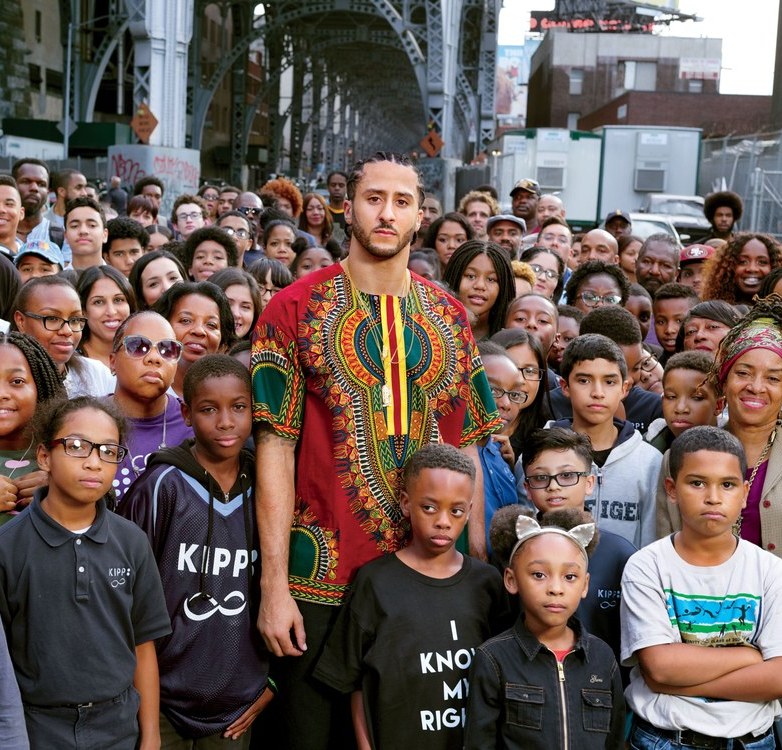
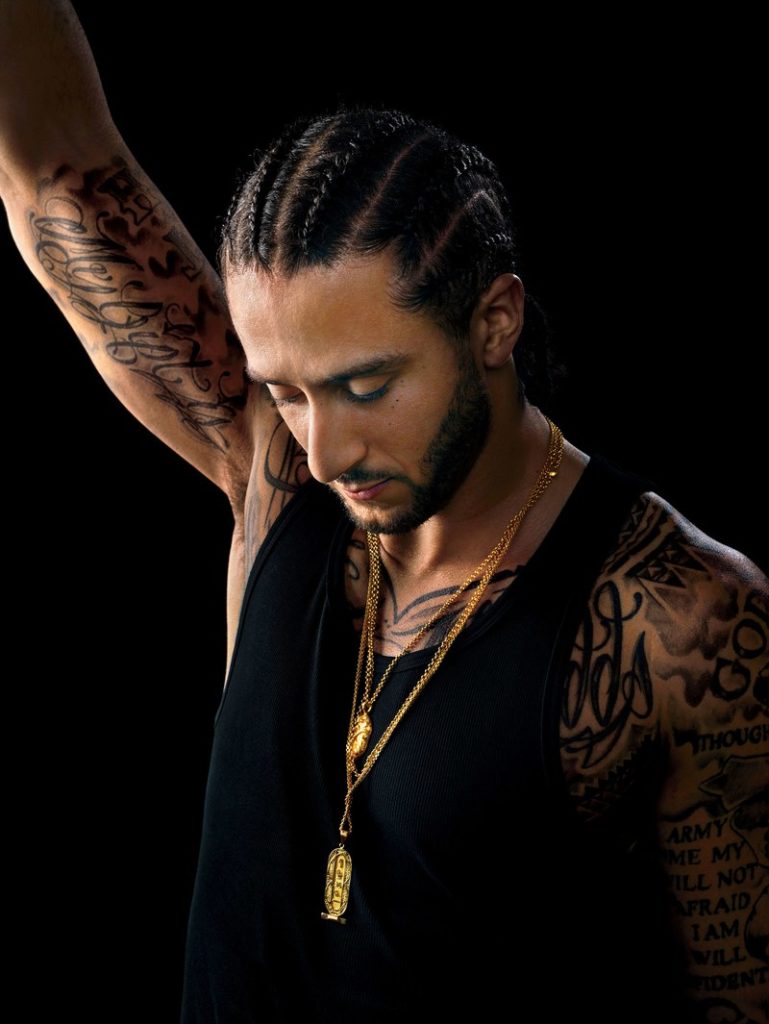
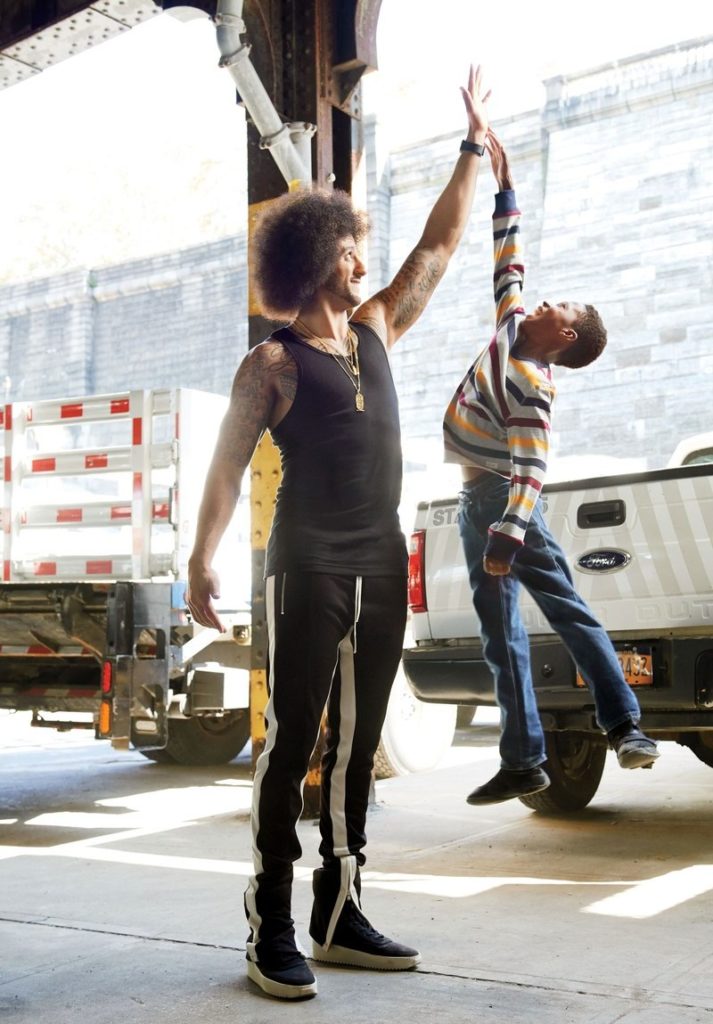
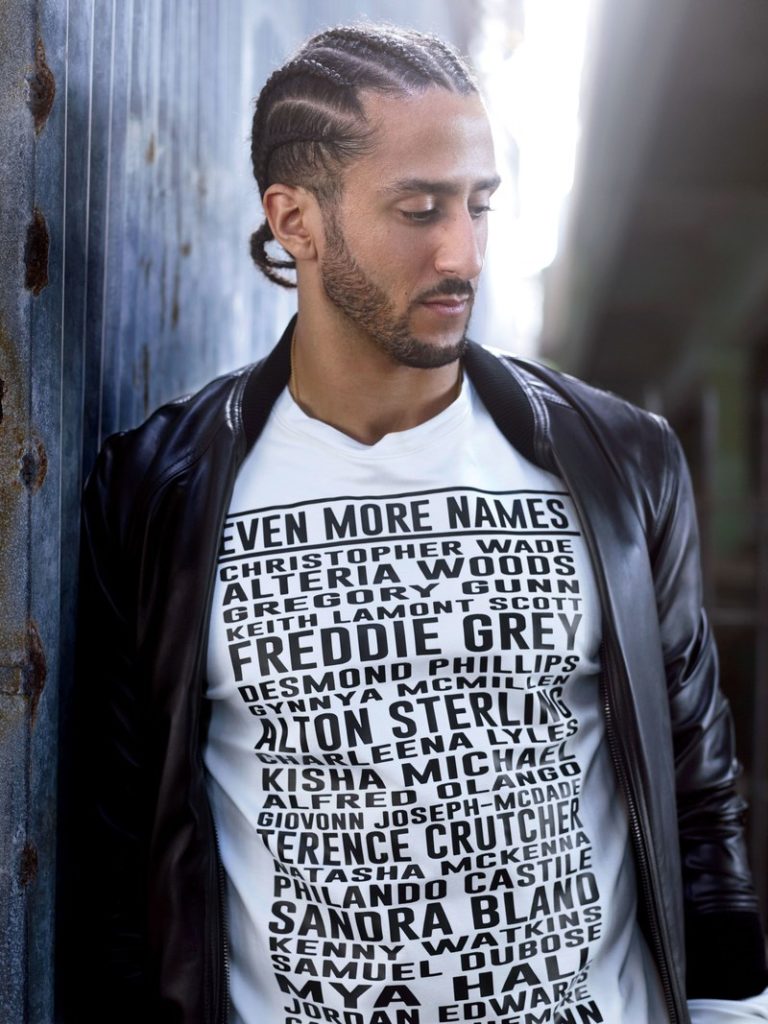
*“Approximately 90 men are currently employed as quarterbacks in the NFL, as either starters or reserves, and Colin Kaepernick is better—indisputably, undeniably, flat-out better—than at least 70 of them. He is still, to this day, one of the most gifted quarterbacks on earth. And yet he has been locked out of the game he loves—blackballed—because of one simple gesture: He knelt during the playing of our national anthem. And he did it for a clear reason, one that has been lost in the yearlong storm that followed. He did it to protest systemic oppression and, more specifically, as he said repeatedly at the time, police brutality toward black people.” ~ the editors of GQ magazine
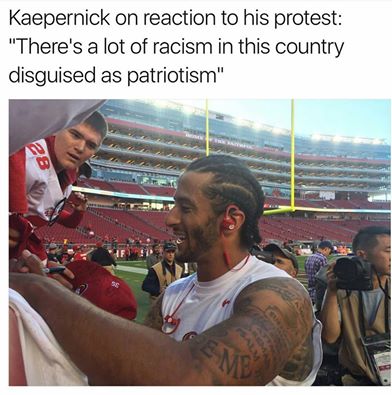
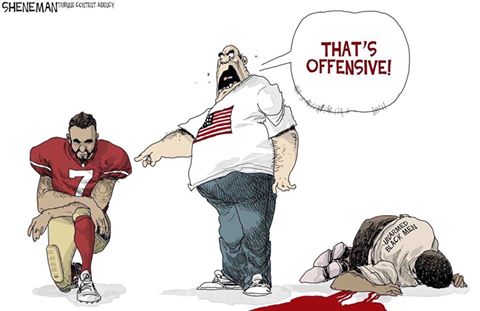




 ;
;